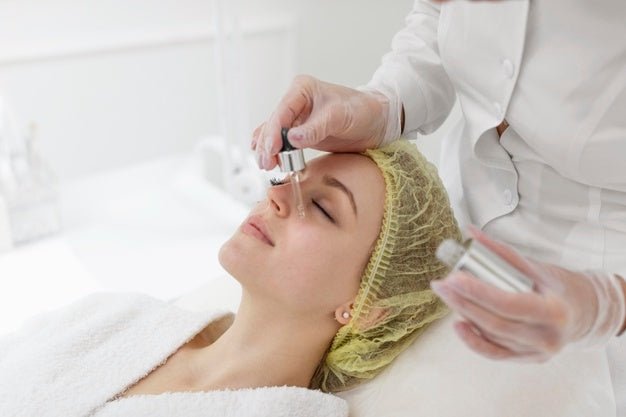How can hyaluronic acid serum help skin repairing?
Have you been thinking about investing in self-care lately? Self-care has gained tremendous attention
in the modern world to promote mental and physical health. It has also been proven to boost self-esteem, reduce stress and anxiety and result in better relationships. Your skin is the best place to begin your self-care journey.
Dewy, glowing, moist, and healthy skin is the key to feeling confident about yourself while promoting your physical and mental skin.
Your skin reflects the kind of products you use on it and the efforts you put in. Therefore, you should invest in quality, efficient and effective products for fantastic skin.

As mentioned above, well-toned, moisturized, hydrated skin calls for the right products. One of the essential products you should always have by your side is hyaluronic acid.
It is an active ingredient in most skincare product categories like sodium hyaluronate found in hyaluronate: cleansers, serums, and moisturizers. You're probably wondering why this ingredient is ubiquitous: it is an excellent
moisturizer, minimizes wrinkles, fine lines, and other signs of aging, and keeps the skin hydrated. Here is everything you need to know about this magical skincare ingredient.
What Is Hyaluronic Acid?
As mentioned above, hyaluronic acid serums play a significant role in moisturizing the skin. As people age, their skin loses significant moisture, which explains why they may choose to take supplements of this acid.
The supplements exist as topical creams, oral supplements, injections, and serums. Hyaluronic acid refers to a group of sugar molecules known as polysaccharides.
The molecule occurs naturally found in the body's connective tissues and works by cushioning and lubricating. As time passes, the hyaluronic acid derivatives stores in the body decline considerably due to aging, smoking, and air pollution.

Despite the disheartening news above, the hyaluronic acid serum is excellent to note that topical products containing hyaluronic acid can help restore the lost stores.
It doesn't matter whether they are moisturizers or serums, as they both work perfectly to achieve the desired goal. Hyaluronic acid works by attracting and binding itself to water molecules.
In the end, hyaluronic acid tremendously increases the water levels in the skin as it can absorb more than 1000 times its weight in water.
By supercharging your skin with moisture, hyaluronic acid becomes an excellent way to achieve the dewy and healthy glow you've always desired.
What Are the Benefits of Hyaluronic Acid?
Hyaluronic acid plays a range of roles in the human skin. We will highlight several of the Hyaluronic
Acid Benefits below:
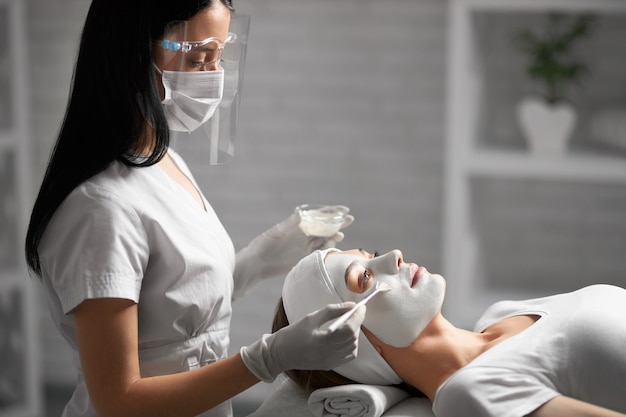
i. Hyaluronic acid Hydrates the Skin
Skin hydration is the critical role that hyaluronic acid plays in the human skin, thanks to its incredible ability to hold moisture. To keep the skin moist and hydrated, people use hyaluronic acid as a supplement.
Besides, this ingredient is also applicable as a topical cream for people looking to keep their skin moisturized and moist. Hyaluronic acid supplements also improve the quality of life for people suffering from dry skin and its effects by increasing skin moisture.
Hydration is one of the Hyaluronic Acid Benefits. Dehydrated skin appears rough, flaky, and dry, which explains why people are keen on keeping their skin moisturized and moist. In addition to aesthetic purposes, dry skin is also dangerous to your health.
Such skin lacks an adequate intact skin barrier which exposes you to hazardous external and environmental risks.
A skin barrier that isn't intact easily allows bacteria in, which results in constant infections. Some of these infections include acne, dermatitis, dry skin, and rosacea.
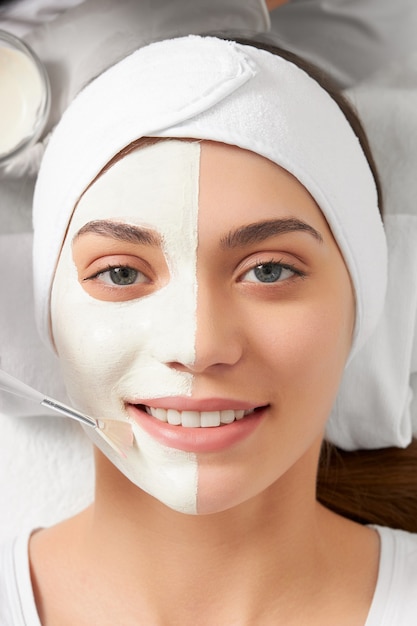
Everyone longs for hydrated skin. It looks plumper, healthier, more vibrant, and younger. On the other hand, skin aging is one of the causes of loss of skin moisture.
Fortunately, you can combat your situation using hyaluronic acid supplements, which boast impressive water absorption features.
The latter keeps your skin moist and moisturized, which in the end helps to refine your skin and reverse the dry, hollow, and crepe areas on your skin. Besides reversing the aging signs on your
skin, hyaluronic acid has also been proven to improve skin tightness, leaving you looking confident and younger. The skin tends to become drier during the winter, ideal for using hyaluronic acid products.
It is also advisable to include this ingredient in your skincare routine, even when struggling with skin dryness. Doing so is the perfect way to achieve the healthy glow that everyone longs for today.
If you haven't been taking care of your skin correctly, it is time to start a skincare routine that includes hyaluronic acid.

ii. Hyaluronic acid Helps to Heal Wounds
Besides enhancing skin moisture, hyaluronic acid is also responsible for the regeneration process of the tissue involved in healing wounds. Applying the acid to wounded skin relieves inflammation and regulates tissue repair.
iii. Hyaluronic acid Smoothens Skin Texture
Any significant changes on the skin result in immense psychosocial impact. Aging is one of the causes of this experience. Fortunately, hyaluronic acid helps reduce the skin's roughness while increasing its elasticity.
iv. Hyaluronic acid is Anti-aging
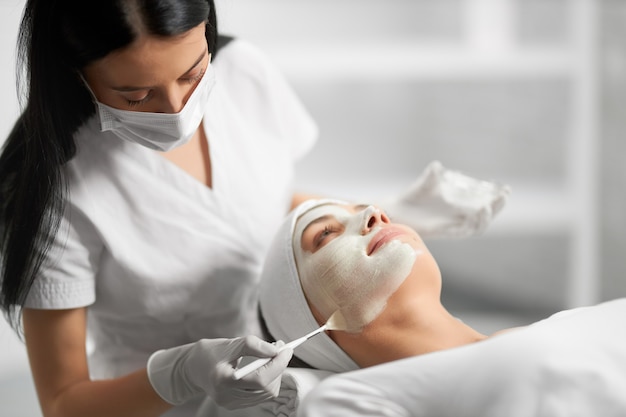
Most of the body's hyaluronic acid is found in the skin. Changes in the levels of this acid due to UV exposure and aging, among other causes, resulting in wrinkles and fine lines.
By increasing the content of this acid, it is possible to reverse and slow down the formation of wrinkles, among other signs of aging. You can also promote skin elasticity and firmness at the same time.
v. Hyaluronic acid Alleviate of Joint Pain
Joint pain and inflammation primarily result from reduced lubrication. Fortunately, you can reduce and alleviate this pain by getting injections to lubricate the affected joints. Combining the different treatment options with hyaluronic acid makes the medication more effective.
vi. Hyaluronic acid Reduces dermatitis
Hyaluronic acid serums have also been proven to improve the effects of mild eczema to moderate. The technique is more effective than creams with ceramide emulsion, among other options.
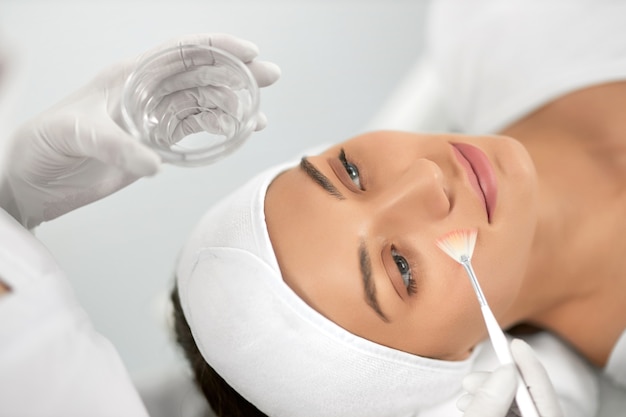
vii. Hyaluronic acid Combats Gum Disease
Hyaluronic acid also plays a vital role in the postoperative care of patients who undergo dental procedures. As mentioned above, this ingredient is incredible at healing wounds. Besides, it is also helpful when dealing with mouth ulcers and gum disease.
viii. Hyaluronic acid minimizes Acid Reflux.
Heartburn and acid reflux are common symptoms of gastroesophageal reflux disease. Using hyaluronic acid cream supplements with acid suppression helps improve the symptoms of patients struggling with a popular GERD known as non-erosive reflux disease.
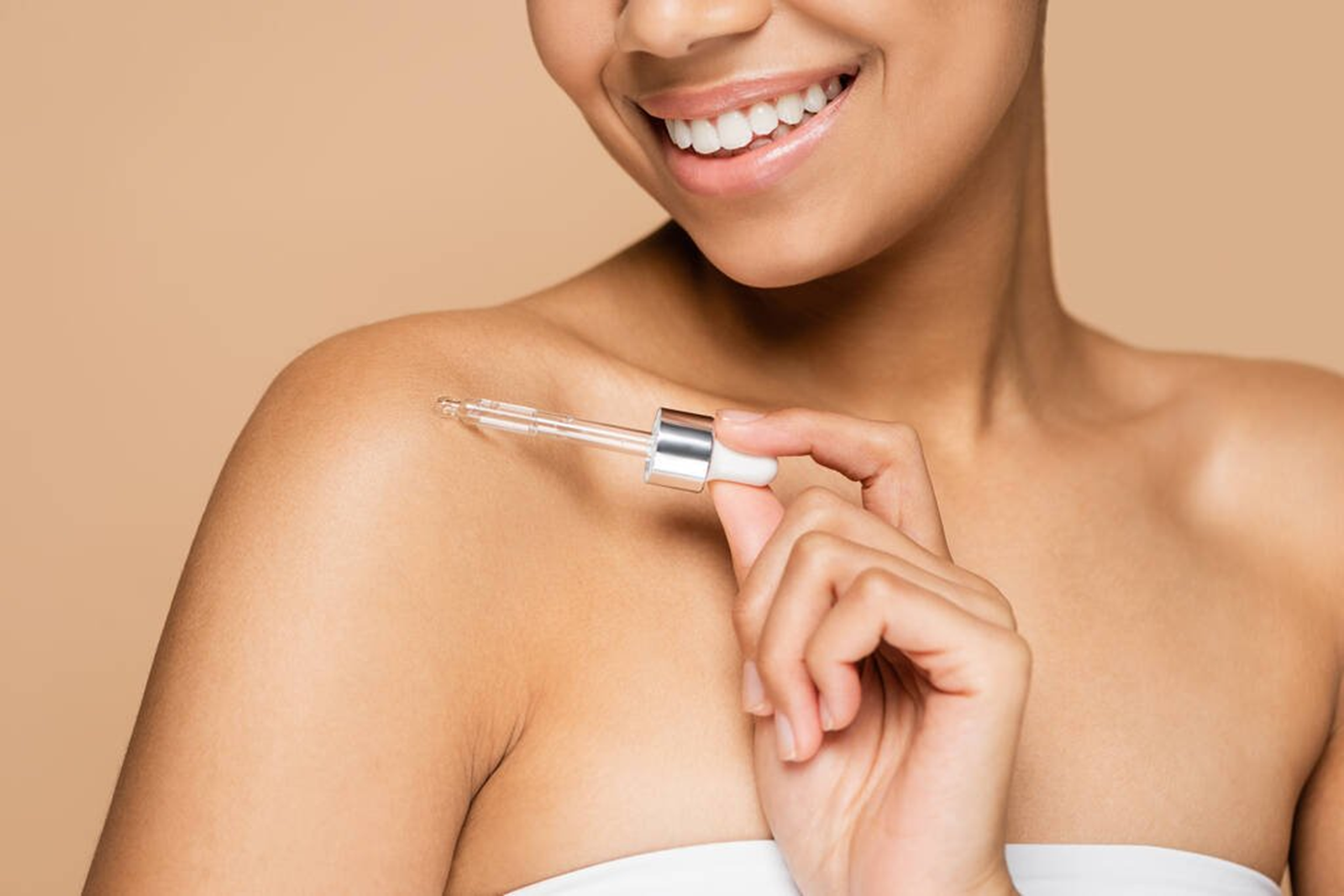
ix. Hyaluronic acid Sooths Dry Eyes
Besides the skin, the eyes also contain a significant hyaluronic acid. Eye drops containing this ingredient can significantly soothe dry eyes, leaving you peaceful and relaxed.
x. Hyaluronic acid Manages Vaginal Dryness
Most females experience vaginal dryness as they approach menopause. This experience can tremendously affect their quality of life and requires instant attention.
If you're struggling with this condition, a combination of estrogen and hyaluronic cream should come in handy. For people who can't use hormonal treatments, you should consider hyaluronic acid creams as they are more effective than the above combination.
xi. Hyaluronic acid Prevents Bladder Pain
Patients struggling with symptoms of painful bladder syndrome should consider using hyaluronic acid. The component is introduced into the bladder via a catheter to alleviate the pain.
However, there isn't any evidence to prove whether oral supplements work in patients with bladder complications.
Is It Advisable to Use Hyaluronic Acid Every day?
One of the most popular questions about using hyaluronic acid is if it is safe for daily use. The frequency of hyaluronic acid depends on its type.
While most people use skin care products with this ingredient twice daily, it is vital to read the instructions and consult your supplier before using them.
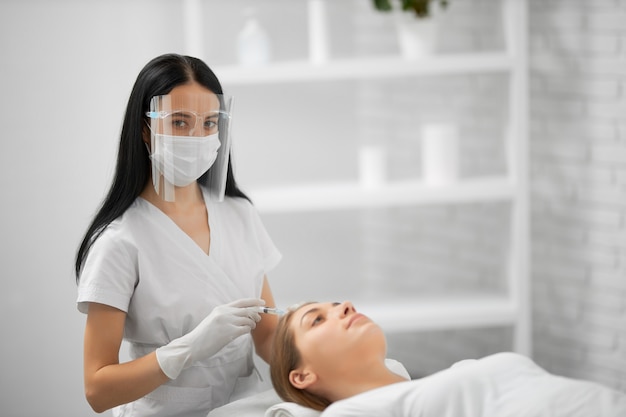
Forms of Hyaluronic Acid
Hyaluronic acid exists in different forms as outlined below:
Oral
The market offers hyaluronic acid tablets, which are taken by swallowing. These oral supplements are efficient in the treatment of:
- Wrinkles and fine lines
- Dehydrated skin
- Joint pain
It would be best to always talk to your doctor before using these supplements. If you're using other medications, they may interact, which necessitates professional advice.
Topical
Topical nano hyaluronic acid is further classified into:
- Serums
- Creams
- Lotions
- Foams
This category is excellent for increasing moisture levels in your skin and reducing signs of aging.
Injections
Since the body naturally produces hyaluronic acid, there are minimal allergic reactions. Therefore, you can take the injectable hyaluronic acid for either medical or cosmetic reasons.
Fillers, for instance, are one of the cosmetic purposes of these injections, and they may include lip and facial fillers. Dermatologists inject this acid into the lips to make them look plumper.
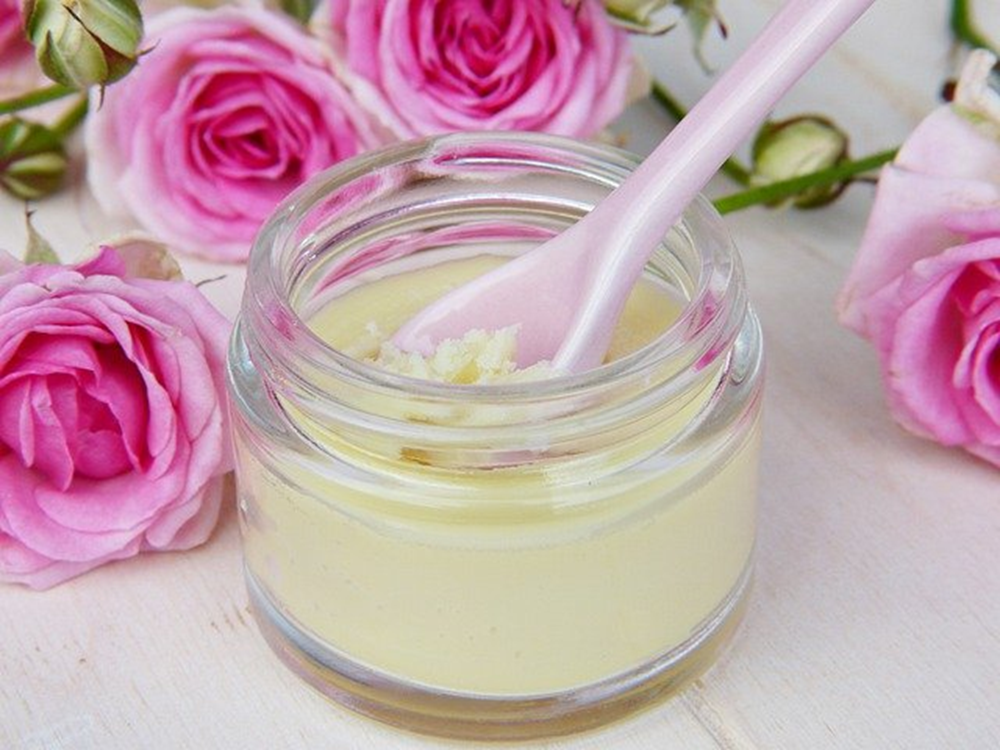
Are There Any Side Effects Associated with Hyaluronic Acid?
There are several reasons why people choose to avoid using HA. One of the main fears is that HA can cause allergies, including dermatitis, rashes, and redness. Although HA can raise inflammation in sensitive skin, allergic reactions are very rare.
If your skin breaks out frequently, you could try mixing a few drops of tea tree oil with your regular moisturizer.
Even though tea tree oil may sound weird, it reduces irritation and itching caused by HA. People who go for injections may encounter the following side effects:
- Bruises
- Pain
- Flushed
- skin
- Itching
- Swelling
Hyaluronic Acid and Pregnancy/Breastfeeding
Expectant and nursing mothers should talk to healthcare providers before using hyaluronic acid
injections. You should also do so if you're planning to get pregnant. While there's no significant evidence to prove the impact of the acid on newborns or fetuses, the professional should guide you accordingly.
Essential Considerations to Make When Buying Hyaluronic Acid Topicals
Hyaluronic acid is found in all categories of skincare products such as:
- Sheet
- masks
- Serums
- Eye
- creams
- Moisturizers
- Lip
- treatments
- Cleansers
Buying a topical skincare product with hyaluronic acid may seem easy. However, it becomes challenging and confusing when you go into the market and encounter limitless options, some of which are counterfeits and a few authentic.
It would be best to have some tips and guidelines to guide you through before you use hyaluronic acid. Read on below to make the right decision:
1) Pay Attention to Allergens and Vitamin C
When buying hyaluronic acid topical products, you must be cautious about any ingredients you are allergic to. If there are any irritations used in the past, you must also check them out and avoid the
products that contain them. As you check through the ingredients like sodium hyaluronate, it is advisable to look out for hyaluronic acid products with vitamin C. Some of the perfect examples of these ingredients include Dermalogica BioLumen-C Serum.
Hyaluronic acid serum and vitamin C work more effectively when used together to provide exceptional results in minimal time.
2) Check Out Its Molecular Weight.
When choosing a hyaluronic acid serum topical product, it is essential to check out its molecular weight and its ingredients. While it may not be listed in some cases, it is essential to inquire about it as it determines the efficiency of the product.
Acids with a lower molecular weight penetrate the skin easily. Therefore, they are more effective at fighting wrinkles and other signs of aging while increasing skin firmness, elasticity, and hydration.
3) Check Out for Alcohol.
Skin hydration is the key benefit that results from using hyaluronic acid products. Alcohol, on the other hand, counteracts the products' moisturizing benefits. Isopropyl alcohol is an extremely drying component that leaves the skin vulnerable to cracks.
Such skin breaks easily and allows bacteria and irritants to penetrate and, in the end, cause infections. Besides, the drying effect counteracts the needs and expectations of the user.
Since the ingredients are listed in order of their concentration, you should be keen about where the alcohol appears on the list. The product is likely to be drying if alcohol appears among the top six.
4) Avoid Fragrance
Skincare products with added fragrance cause breakouts and irritation among people with sensitive skin. It is thus advisable to steer clear of such products when shopping for hyaluronic acid topicals. Moreover, Fragrance can also result in dermatitis.
The latter refers to skin rashes that appear due to contact with a trigger and may occur a few minutes to days after the contact.
5) Water Is Your Most Significant Friend.
Water is the most significant ingredient in any skincare product. It translates to the highly moisturized and glowing skin that you desire. It is usually the first ingredient on the list, making your hyaluronic acid product more effective.
It is advisable to settle for a more water-based product rather than oil, gel, or cream as the former quickly penetrates the skin, which means higher effectiveness.
Where Does Hyaluronic Acid Come From?
Plant-based Hyaluronic Acid
Plant-based Hyaluronic Acid comes from plants such as sugar cane, aloe vera, and other types of seaweed. The manufacturing process involves extracting the plant’s natural sugars, which are then fermented into a clear liquid containing the highest HA concentration.
This solution is then purified using an ultrafiltration membrane that removes impurities and concentrates on creating a high-quality product.
The final stages involve filtering the product again with charcoal filters to remove any remaining toxins. These steps ensure that you get all the benefits and no side effects of this fantastic ingredient.
Animal-based Hyaluronic Acid
Animal-based Hyaluronic Acid is derived from animals like bovine or porcine mucin. It is similar in structure to human HA but is much more bioavailable.
Animal-derived HA tends to be less expensive than plant-derived HA products because it requires fewer purification processes. Also, animal-based products must come from slaughterhouses or farms, so they may not always be cruelty-free.
Is There A Difference Between Plant-Based And Animal-Derived Hyaluronic Acid Serum?
Both plant-based and animal-derived HA serum have their advantages and disadvantages. As mentioned earlier, plant-based HA serum is preferred over animal-based HA serum since it doesn't require processing when being produced. This means more nutrients and essential fatty acids in plant-based HA serum.
However, animal-based HA serum has its own set of benefits that make it worth considering. For example, some people prefer using animal-derived HA serum since they think that animal-derived HA can penetrate the deeper layers of the skin better than plant-based HA.
Also, animal-derived HA usually costs less. You need to find out what works best for you!
What Are The Different Types of Hyaluronic Acid?
Hyaluronic acid comes in many different forms, including powder, gel, liquid, cream, and sheet. Each type has its benefits as well as drawbacks. Some types are better suited for specific skin issues, while others work very well for any issue. Most people opt to use a combination of two or three types when treating their skin.
Here are five of the most popular types on the market today:
1. Powder Hyaluronic Acid – This form of hyaluronic acid is best for topical application due to its small particle sizes. They are easy to disperse throughout your skin and apply with a brush. When applied over time, these particles eventually bond together into larger masses.
To keep them from clumping up, add a few drops of water to the jar before applying the product. You can also mix the HA with your favorite moisturizer.
2. Gel Hyaluronic Acid– These gels are thicker than powders and contain little to no water. Because of this, these gels tend to last longer in the container, making them perfect for travel. Gels are usually used topically for facial treatments. Mixing them with moisturizers makes them great base products for creams and lotions.
3. Liquid Hyaluronic Acid — Liquid HA is thick like a gel. However, liquid HA doesn't require water to stay spreadable as opposed to gels. It works better for those who wish to hydrate their face without weighing down the rest of it.
Additionally, it can easily replace the moisture lost through sweating if you suffer from conditions like rosacea.
4. Cream Hyaluronate – Cream hyaluronates are made from HA molecules combined with oils. They are often mixed with emollients to make them feel softer and smoother.
5. Sheet Hyaluronic Acid -Sheets of hyaluronic acids are made with sheets of pure HA. Usually, they're used to treat eye wrinkles because of their ability to fill out empty areas.
However, sheets are generally more absorbent and therefore soak up large amounts of fluid. Unlike most other treatments for aging eyes, sheets need only one coat per eye to provide immediate results.
Hyaluronic acid
Hyaluronic acid is a vital ingredient in skincare products. Besides ensuring that your skin is highly moist and moisturized, Hyaluronic acid skincare products also carry a range of other benefits not only for the skin but other parts of the body.
If you're struggling with signs of skin aging, such as wrinkles, or you're looking for ways of making your skin appear younger, consider products with hyaluronic acid molecules.
Besides giving your skin the best care and maintenance, while keeping it firm and elastic, Hyaluronic acid is also responsible for treating many other medical conditions.
You can consider combining hyaluronic acid supplements as injections, orally or topically. Ensure that you consult with a professional before taking the supplements for effective performance and prevent any possible occurrences.
FAQs
Is hyaluronic acid good for broken skin?
Yes. Healing, elasticity, and reducing inflammation are among the three most essential skincare things that can be used. It draws in more moisture than other products, so it's more important to use it on fresh breakouts.
Does hyaluronic acid make your skin peel?
Hyaluronic acid can remove moisture from the skin. Many dermatologists will warn you about the dangers of hyaluronic acid because it can remove moisture from your skin.
If you're using it to help with wrinkles, you're better off using it in conjunction with a moisturizer.
If you're using it in the hopes of preventing wrinkles, then it's essential that you only use the right amount to lighten your wrinkled area.
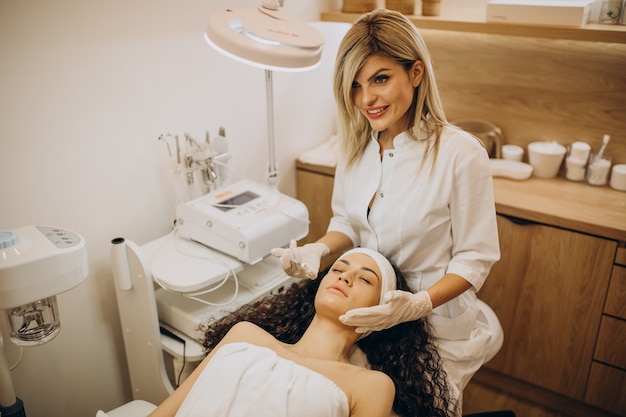
Does hyaluronic acid help with pitted scars?
Pitted scars are caused by acne or shallow cuts on the skin, which eventually heals into scarring. Hyaluronic acid is a type of acid that, according to some studies, can help with pitted scars.
However, no known studies confirm the benefits of hyaluronic acid serum for deep, pitted scars.
Does hyaluronic acid heal scars?
The answer is yes! Hyaluronic acid is a natural substance that helps repair damaged tissues by restoring moisture and elasticity to the skin.
It is made up of sugars that are naturally found in our bodies. These sugars create an environment where cells can thrive and grow. This means that they will be able to regenerate into healthier tissue.
How long does it take for hyaluronic acid to work?
It takes a few weeks ranging from four to six weeks, for the results to appear. You will see an improvement after using the product once or twice daily.
What Are Some Benefits Of Using A Serum With Hyaluronic Acid?
Hyaluronic Acid gives your skin superior hydration because it attracts water from surrounding tissue and holds onto it. It also helps prevent moisture loss and keeps skin smooth.
An added benefit of having a good moisturizer is that its ingredients work together to improve circulation and provide nutrients to your skin.

